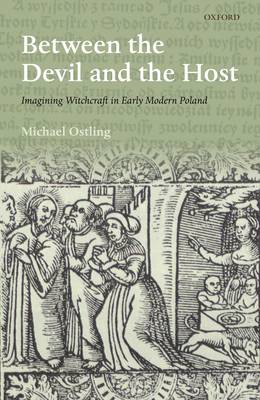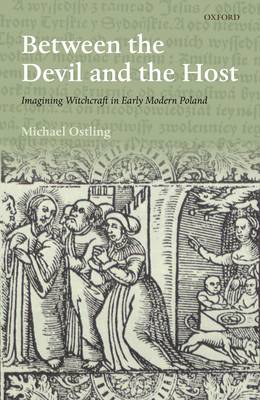
Bedankt voor het vertrouwen het afgelopen jaar! Om jou te bedanken bieden we GRATIS verzending (in België) aan op alles gedurende de hele maand januari.
- Afhalen na 1 uur in een winkel met voorraad
- In januari gratis thuislevering in België
- Ruim aanbod met 7 miljoen producten
Bedankt voor het vertrouwen het afgelopen jaar! Om jou te bedanken bieden we GRATIS verzending (in België) aan op alles gedurende de hele maand januari.
- Afhalen na 1 uur in een winkel met voorraad
- In januari gratis thuislevering in België
- Ruim aanbod met 7 miljoen producten
Zoeken
€ 273,95
+ 547 punten
Uitvoering
Omschrijving
Outside the imagination, witches don't exist. But in Poland and in Europe and its colonies in the early modern period, people imagined their neighbours to be witches, with tragic results. For the first time in English, Michael Ostling tells the story of the imagined Polish witches, showing how ordinary peasant-women got caught in webs of suspicion and accusation, finally confessing under torture to the most heinous of crimes. Through a close reading of accusations and confessions, Ostling also shows how witches imagined themselves and their own religious lives. Paradoxically, the tales they tell of infanticide and host-desecration reveal to us a culture of deep Catholic piety, while the stories they tell of demonic sex and the treasure-bringing ghosts of unbaptized babies uncover a complex folklore at the margins of Christian orthodoxy. Caught between the devil and the host, the self-imagined Polish witches reflect the religion of their place and time, even as they stand accused of subverting and betraying that religion. Through the dark glass of witchcraft Ostling explores the religious lives of early modern women and men: their gender attitudes, their Christian faith and folk cosmology, their prayers and spells, their adoration of Christ incarnate in the transubstantiated Eucharist, and their relations with goblin-like house demons and ghosts.
Specificaties
Betrokkenen
- Auteur(s):
- Uitgeverij:
Inhoud
- Aantal bladzijden:
- 296
- Taal:
- Engels
- Reeks:
Eigenschappen
- Productcode (EAN):
- 9780199587902
- Verschijningsdatum:
- 15/02/2012
- Uitvoering:
- Hardcover
- Formaat:
- Genaaid
- Afmetingen:
- 157 mm x 239 mm
- Gewicht:
- 576 g

Alleen bij Standaard Boekhandel
+ 547 punten op je klantenkaart van Standaard Boekhandel
Beoordelingen
We publiceren alleen reviews die voldoen aan de voorwaarden voor reviews. Bekijk onze voorwaarden voor reviews.









